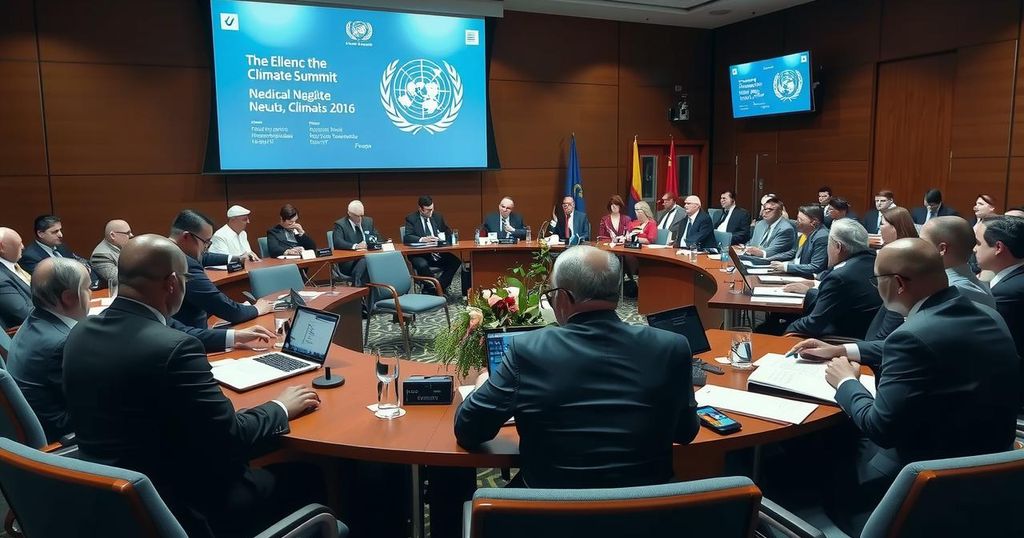The UN climate negotiations in Baku, Azerbaijan, have entered their second week, with a focus on securing $1 trillion for developing nations to transition from fossil fuels and adapt to climate change. With divergent views on financial contributions from developed and developing countries, calls for concrete action have been made by climate advocates. The concurrent G20 summit adds urgency, highlighting the need for significant public financing to tackle historical emissions responsively.
In Baku, Azerbaijan, the United Nations climate talks have commenced their second week, with negotiators pressed to prioritize actionable solutions over discussions. Simon Stiell, the UN Climate Change executive secretary, emphasized the importance of collaborative efforts among nations to reach a mutually beneficial agreement. The focus of the ongoing talks is to secure increased financial support for developing countries to transition from fossil fuels and adequately adapt to the impacts of climate change. However, a significant disparity exists between nations regarding the estimated $1 trillion financial requirement for these efforts, with rich countries urging contributions from developing nations such as China and Gulf states. Concerns have been voiced by climate justice advocates about potential motivations behind such proposals, suggesting that they may hinder necessary funding rather than enhance it. Moreover, discussions surrounding the G20 summit in Brazil highlight the urgency of addressing historical emissions and securing extensive public financing. Activists stress the importance of commitments from key nations, including the United States, to achieve tangible climate action ahead of crucial impending agreements.
The climate talks in Baku are part of broader international efforts to combat climate change, focusing particularly on financial mechanisms that support developing countries. As these nations often bear the brunt of climate-related disasters, securing adequate funding is paramount for their transition to sustainable energy practices. The disparity in expectations between rich and developing countries regarding financial contributions remains a troublesome point within negotiations, as various stakeholders underline the critical need for substantial climate finance to mitigate future impacts stemming from climate change. The G20 summit concurrently taking place added another layer to the discussion, emphasizing global responsibility regarding historical emissions and the need for collaborative financing solutions across nations.
In conclusion, the ongoing UN climate talks in Baku underscore the urgent need for negotiators to overcome financial discrepancies in order to support developing countries facing the dire consequences of climate change. Despite the call for increased contributions from wealthier nations—including an expected $1 trillion for climate initiatives—doubts linger about the motivations behind urging developing countries to also contribute. The outcomes of these discussions will significantly influence global climate action, particularly as the G20 summit unfolds and further commitments are sought from key players in the international community. The emphasis on actionable agreements stands as a pivotal point in the fight against climate change.
Original Source: www.bostonglobe.com






